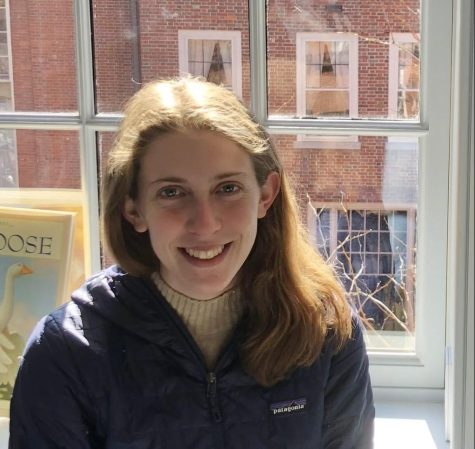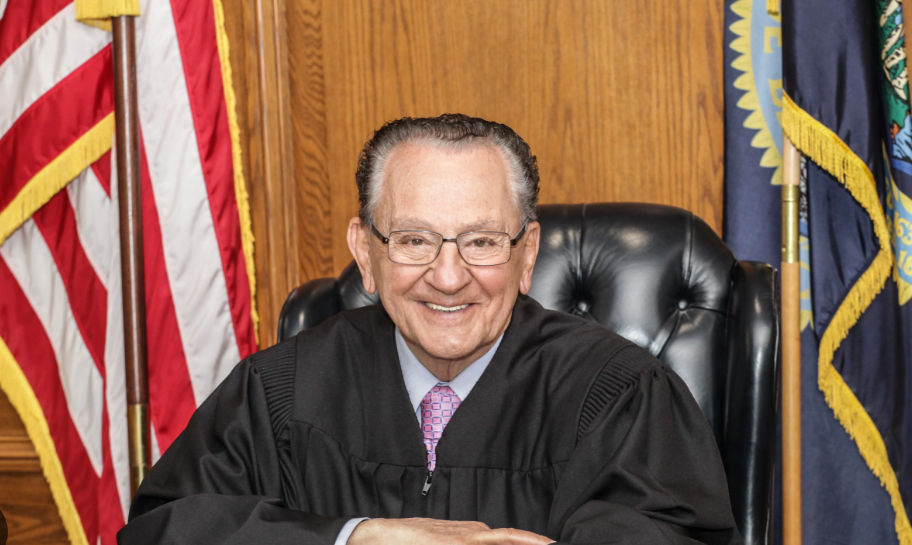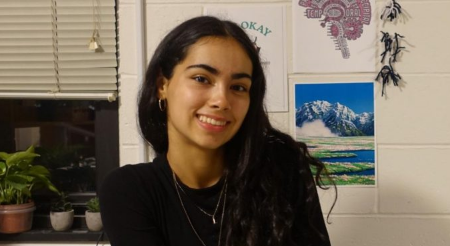A break from school can be nice. It can change up the relentless pattern of arriving at South in the early morning, hearing the bell ring time and again. However, sometimes it is difficult to take a step back, missing a day of normal life. Many Jewish students and staff can relate to this.
The Jewish holiday of Yom Kippur, or the Day of Atonement, began last Sunday night, September 24, stretching until Monday evening, September 25. Because of this, many Jewish members of the South High community missed school on Monday. Yom Kippur, the holiest day in the Jewish year, is a valuable time of reflection and prayer—but missing school for it causes disruptions to everyday life.
Mr. Jones, a robotics teacher at South, described Yom Kippur as an intense and important holiday. “[It inspires] such awe in the Jewish people—this feeling of something mighty,” he said. It’s a day when everything comes together—the power of the Jewish community, the impact of one’s own actions over the past year—in a solemn yet unifying manner.
Yom Kippur comes ten days after Rosh Hashanah, the Jewish New Year, and traditionally represents when the Book of Life is sealed, and Jewish people’s fates for the upcoming year are decided by God. Yom Kippur is frequently interpreted as a day of reflection and repentance, and most Jews fast from sundown to sundown on the holiday. “On Yom Kippur, you’re supposed to have some degree of suffering, to remind yourself of any wrongdoing,” Ms. DeHaan, a Spanish teacher said, sharing why she values fasting on Yom Kippur. “It reminds me to be humble and think about how to be a better me.”
Like Ms. DeHaan, many Jews use the day to think about the past year, and where their life is now. Mr. Jones uses it to “[ponder] on the year before and the year to come.”
This meaning holds true for many Jews, whether or not they consider themselves strictly religious. “[It’s] a day to have to. . . reflect deeply,” said Ms. Weinsaft, a psychology teacher. “When you’re fasting, the only thing you should be focusing on is your reflection of your year.”
On Yom Kippur, she said, she likes to get outside and take in nature, “just getting lost on a trail all day.”
Many other Jews attend synagogue on Yom Kippur and find a sense of unity in being together. “I think it’s a time of introspection, but at the same time, I would describe it as very communal,” said Ms. DeHaan. “You sit with other people at temple, you go to Tashlich (a symbolic casting away of sins by tossing pebbles or bread into a body of water) with other people.”
Mr. Jones recalled the various roles he had at synagogue growing up—chanting Torah or Haftarah at services, being an usher to help people find their seats, helping prepare food in the kitchen for the community break fast at sundown. “For me, those long days spent in synagogue were really me being part of a community. And I liked that.”
Mr. Jones, Ms. Weinsaft, and Ms. DeHaan all missed school on Monday in order to commemorate Yom Kippur, but it has never been easy to do, especially when they were newer teachers.
In his first year of teaching at South, Mr. Jones didn’t feel comfortable asking for a day off only a few weeks into the school year—even though he knew it was his right. For him, it is harder to observe Yom Kippur when he feels like an exception to the norm in Worcester.
Ms. Weinsaft felt similarly in her early years of employment. “When you call out, you put more work on other people, and I was scared of singling myself out,” she said.
Even now, farther into their careers and feeling more comfortable in their jobs, the teachers find it challenging to miss a day of school. This early in the year, Mr. Jones said, “I’m in the mode of trying to connect with my students, trying to get to know them.”
“The beginning of the year is so important for setting routines and expectations,” said Ms. Weinsaft. For her, it is “brutal” to have to miss the day for Yom Kippur, though she at least feels secure knowing that she can bring a class back on track from a day off.
Beyond building expectations and relationships with students, the teachers’ rhythm is thrown off by being absent on Yom Kippur. Ms. DeHaan feels behind whenever she misses a day of school—there seem to always be more grades to put in, more homework to review, a meeting that she missed. “We always have so much to do,” she said.
“It’s incredibly frustrating,” said Mr. Jones. “I wish we had the day off here.” His class was supposed to start a new unit on Monday the 25th, but now he has to give them independent work on their Chromebooks. “It’s not going to be the fun start to the unit that I wanted it to be,” he said.
However, the teachers still value celebrating Yom Kippur outside of school. Mr. Jones’ first year of teaching was remote, and he taught on Yom Kippur, while fasting. “That was terrible,” he said. “That sucked. And that’s why I never did it again.”
Ms. Weinsaft shared a similar disdain for teaching on Yom Kippur. “It was hard for me to not have that space and time in the year.” There’s no way to reflect on your year while at work, she said. “I don’t have a second to sit down and breathe.” Furthermore, she doesn’t think it is practical or safe to fast while teaching, when she doesn’t have as much energy as she needs.
Taking the day off gives the teachers the space to observe Yom Kippur in a meaningful way. Ms. Weinsaft has always appreciated how Yom Kippur allows her to think about her impact on her community, as well as apologizing to people she may have hurt, ultimately helping to make things right again. It’s a sort of mental health holiday, she described.
“If we created space for that in everyday life,” she said, “the world would probably be a better place.”







